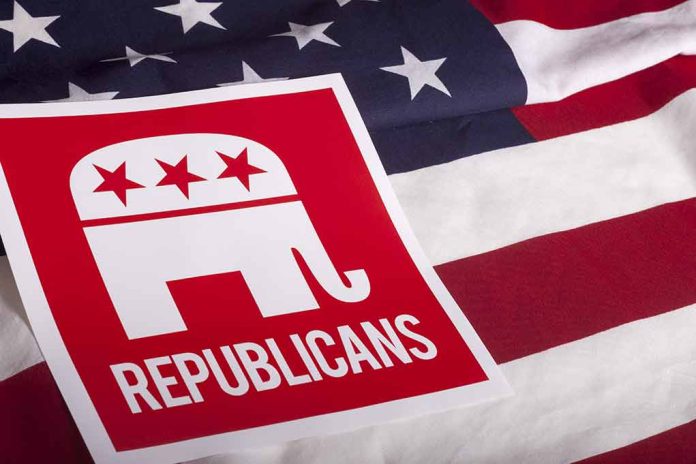
The Republican Party has shifted the direction of the nation by winning control of the House, Senate, and presidency.
At a Glance
- Republicans have reportedly achieved a government trifecta, controlling the White House, Senate, and House.
- Narrow majorities could complicate GOP legislative ambitions.
- Key priorities include tax reform, border security, and healthcare changes.
- The GOP flipped battleground seats, fortifying their political stance.
A Sweeping Victory for Republicans
According to election projections, Republicans have achieved control over the U.S. government for the first time since 2018, as they now hold the presidency, House, and Senate. This political trifecta presents opportunities for the GOP to implement reforms and further the policies championed by former President Donald Trump. However, the narrow majority in the House—where they hold 220 seats—might prove challenging as it can complicate legislative efforts, especially concerning proposed reforms in areas like healthcare.
The Republican victory was bolstered by strategic wins in key battleground states, flipping seats in Pennsylvania, Colorado, and Michigan. At the same time, they successfully defended seats in Arizona, Iowa, and Nebraska. They plan to expand their influence further in California and attempt to turn a seat in Alaska. Despite these victories, internal divisions within the party may affect their ability to maintain unity and effectively pass legislation.
BREAKING: Republicans maintain House majority, clinching trifecta of government control https://t.co/2kcfCE2Ybv
— TIME (@TIME) November 14, 2024
Republican Priorities and Challenges
The GOP has a clear agenda with key priorities including tax reform, increased funding for border security, and a significant overhaul of the Affordable Care Act. Quoting Mike Johnson, the newly elected Speaker of the House, at the end of October, “Health care reform’s going to be a big part of the agenda. When I say we’re going to have a very aggressive first 100 days agenda, we got a lot of things still on the table.” Johnson’s leadership, however, isn’t without its challenges; he faces the arduous task of unifying the Republican caucus to avoid potential political deadlock.
Despite the control, Republicans will have to counter significant opposition from Democrats and various progressive groups. The partisan redistricting across the nation has also decreased the number of genuinely competitive seats, leading to more expensive and fiercely contested races focused on just about 45 districts. Republicans capitalized on Democratic missteps in redistricting strategies, like those in New York and a beneficial GOP-drawn map in North Carolina.
Future Political Landscape
As Republicans consolidate their power, they must navigate a political landscape fraught with challenges. The party, now more aligned with Trump’s policies, benefited from strategic candidate recruitment and support. Vulnerable incumbents like Don Bacon and Brian Fitzpatrick were able to overcome intra-party challenges in primaries, underscoring the party’s strengthened electoral strategy. In Alaska, Republicans successfully unified around a single candidate, navigating the complexities of the state’s ranked-choice voting system.
Looking ahead, cooperation will be key for Republicans, particularly concerning President Trump’s tax policy goals that require legislative backing. As the dust settles, the slow counting of mail-in ballots, especially in states like Arizona and California, is a reminder of the challenges that lie ahead in maintaining and expanding Republican control in future elections.
Sources
- Republicans Maintain House Majority, Clinching Trifecta of Government Control
- GOP Holds Onto House Majority – Clinching the Trifecta
- Republicans keep the House, handing Trump a trifecta of government control

















